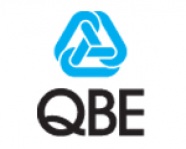Should car dealers be adapting quicker to digitalisation?

By QBE National Development Manager Chris Ullathorne
The automotive industry is undergoing a once in a generation transformation, as more and more consumers purchase their vehicles online. This shift in consumer behaviour is a potential game changer for the automotive industry.
Purchasing a car is one of life’s big investments, and one that has historically seen buyers seek the reassurance and advice offered by a local dealership.
Before lockdowns closed showrooms, less than 1% of used car sales were completed online, far lower than many other areas of retail. However, the pandemic has changed attitudes and hastened the move online. According to What Car?, one-in-10 car buyers now say they intend to buy their next vehicle wholly online, while more than half would be comfortable purchasing a car online.
Used car buyers are also increasingly driven by other factors. Younger generations have grown up with the convenience of buying online, and are typically more image conscious. A growing number of used car buyers are prepared to go the extra mile to secure the right make, model and colour, and will not hesitate to go online to get the best deal.
Data and customer touchpoints pose biggest challenge
Dealerships will need to adapt to this emerging digital age, which is likely to see multiple digital models emerge, including online brokers, dealership platforms, online aggregator sites and marketplaces that directly connect buyers and sellers. Traditional local dealerships will still play an important role, but they will need to find ways to leverage online sales opportunities, while also catering for those consumers that want the personal touch.
The big challenge in an online marketplace is maintaining customer relationships. Growth in online sales will mean fewer opportunities for dealerships to build rapport, cement relationships and make sales. In this environment, data will become an important commodity for dealerships, and vital to driving revenues from aftersales services.
Warranties can support digital business models
Vehicle extended warranties lend themselves to digital sales channels. Extended warranties can aid the online sales process, giving consumers peace of mind in their purchase. They provide peace of mind when buying a vehicle unseen or from an unfamiliar seller, and can allay consumers concerns for unexpected and large repair bills.
Warranty sales can also help generate additional revenues and customer loyalty. In addition to providing a revenue stream through up-selling, vehicle warranties can also help drive repeat custom and aftersales revenue, such as servicing and repairs.
QBE’s automotive warranty offering dovetails with dealers’ own service offerings. The product is backed by an online policy and claims administration system that enables dealers to offer customers a range of branded insurance products and register claims simply and quickly.
Getting ready for a digital future
Pre-pandemic, a digital sales model for the automotive sector looked at least a decade away. Now that could be as little as five years away. The current retail business model will increasingly look outdated, and traditional dealerships will need to adapt quickly if they are to respond to changing consumer expectations. Automotive extended warranties can form part of that transformation, helping dealerships, helping to build relationships with customers and boost aftersales revenues.
About QBE
QBE European Operations is part of QBE Insurance Group, one of the world’s leading international insurers and reinsurers and Standard & Poor’s A+ rated. Listed on the Australian Securities Exchange, QBE’s gross written premium for the year ended 31 December 2018 was US$13.7 billion.
As a business insurance specialist, QBE European Operations offers a range of insurance products from the standard suite of property, casualty and motor to the specialist financial lines, marine and energy. All are tailored to the individual needs of our small, medium and large client base.
We understand the crucial role that effective risk management plays in all organisations and work hard to understand our clients’ businesses so that we offer insurance solutions that meet their needs – from complex programmes to simpler e-trading solutions – and support them in minimising their risk exposures. Our expert risk management and rehabilitation practitioners focus on helping clients improve their risk management so that they may benefit from a reduction in claims frequency and costs.

